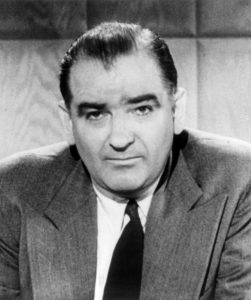
The current unease in the politics of Western nations owes a lot to the disruptive effects of social media contagion, seen in the rise of the yellow jackets of France, avid Brexiters in the United Kingdom, and America’s MAGA enthusiasts, who accept the trashing of American political traditions as payback for being left on the political margins.
We are on the edge of another extended presidential contest, reflected in the growing preoccupation of the national news media on possible challengers in both parties. While its natural to speculate on those who might rise to become a party’s nominee, forces in play now make this handicapping process far less predictive.
The parties once had a tighter grip on its members and it’s brighter lights who were ready to vie for the nomination. But they are now weaker and less cohesive. Leaders and rising stars within them still claim attention, but steering the nomination is more difficult. The difference is the growth of social media. Think of a poker game with two wildcards. That can make for some surprises. Now imagine another game with eight wildcards, which would make any bet far less certain. That’s roughly the effect that media contagion can have on those who want to end up at the top of the heap. Twitter and other social media are always potential disruptors in ways that the once dominant broadcast networks were not.
To be sure, those of us who have studied presidential politics used to be cheered by the decline of the “smoke filled room” of ‘pols’ who could make private deals well out of sight of the the public side of a campaign. For example, John F. Kennedy’s father, Joseph P. Kennedy, famously helped pave the way for the nomination of his son. The elder Kennedy and his friends had the power to make it happen. Now, not only are there no back rooms with true power-brokers, there is no process-centered roadmap that will help predict how the finalists in this long struggle for party dominance will fare. Once they ‘surface’ as candidates they will hit a maw of social media forces not easily controlled by anyone. The serendipitous nature of peer to peer connection is now a driverless car, leaving a lot up in the air in terms of where a candidate will end up. Add in the seemingly endless desire of Russian state actors who can sabotage campaigns with misinformation or inflammatory rhetoric. The point is that the effects of these forces cannot be predicted in advance. It is in the nature of internet contagion that private citizens and others blending with them will create campaign roadblocks no more predictable than a California mudslide. The best we can do is know that some of these narratives will weaken strong contenders, while leaving others mostly untouched.
This was partly the fate of the Clinton campaign in 2016. A range of factors contributed to her defeat: Wikileaks “dumps” of private emails, Trump campaign contacts with Russians eager to see her lose, and a hefty dose of nativist appeals. Trump himself has tried to quell astounding but credible speculation that he is a willing or unwilling “Russian asset.” Yet in other ways the fate of his administration is also to be determined by the social media cards that remain to be dealt.
![]()
We cannot predict whose identities and fantasies might be triggered by factual or fabricated narratives.
This defeat of even minimal predictability owes much to the gap between what might be called a “strategic/rhetorical” model of politics and a new and more fluid model of how information now enters the public sphere. The first assumes an understanding of the rules and key audiences that must be satisfied. The second blurs the idea of “audiences” altogether. At this stage and for the immediate future, we cannot know whose identities and fantasies might be triggered by factual or fabricated narratives from unvetted sources. The best we can know is that when they arise, the “viable candidate” of today may suddenly look unelectable.
In short, the politics of Western nations is now shaped by the disruptive power of social media contagion, seen in the yellow jackets of France, avid Brexiters in the United Kingdom, and America’s MAGA enthusiasts.


